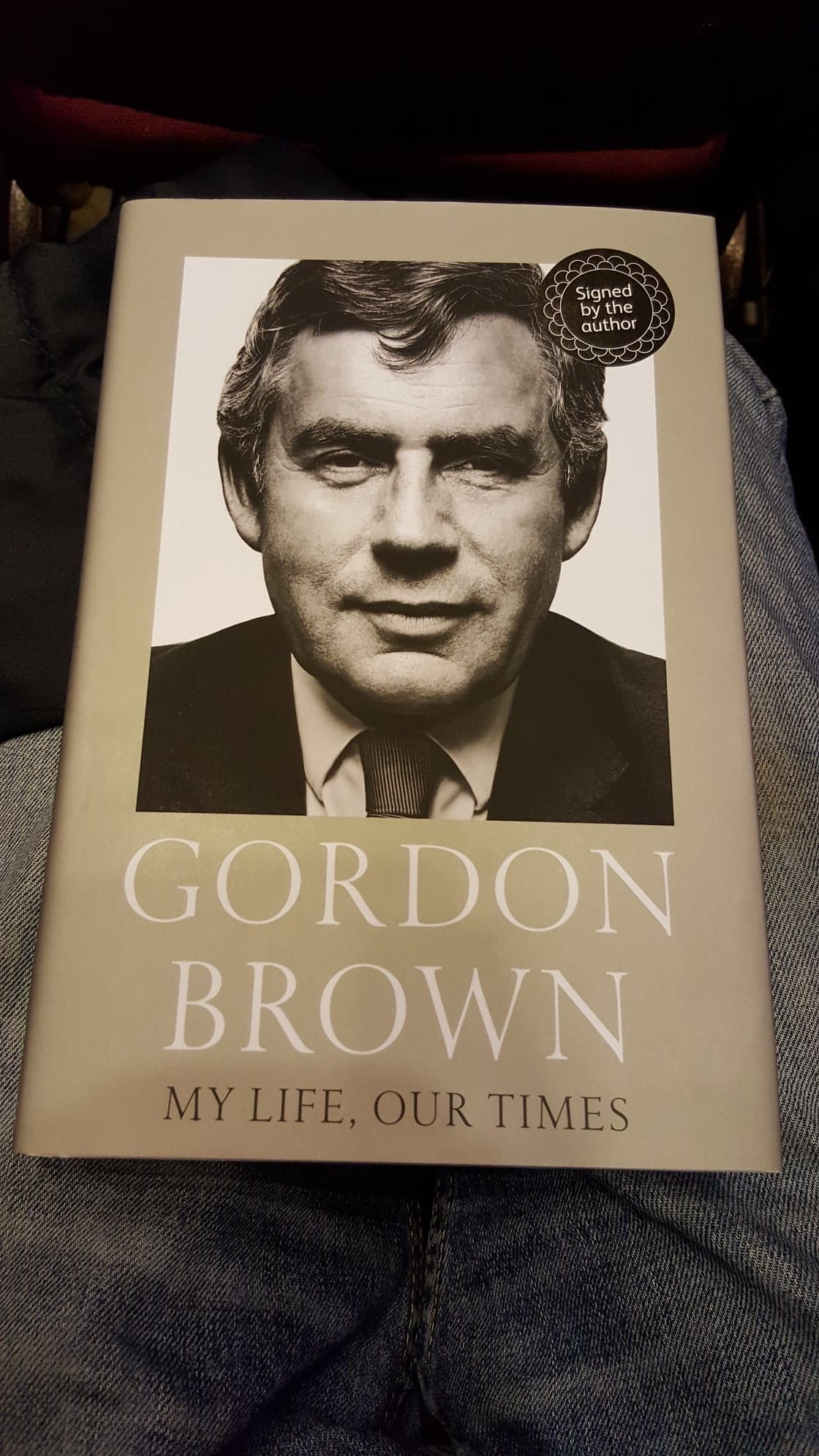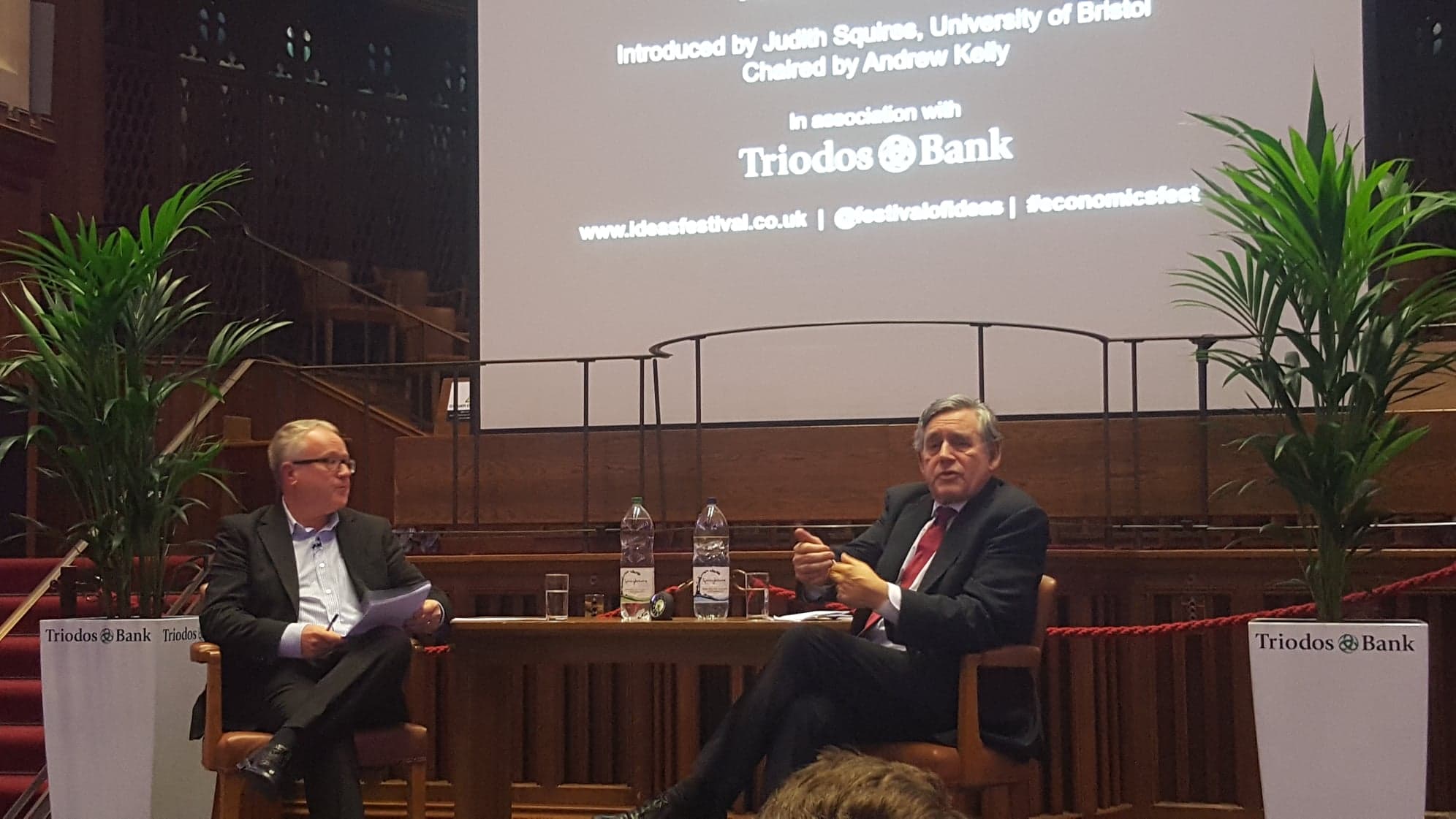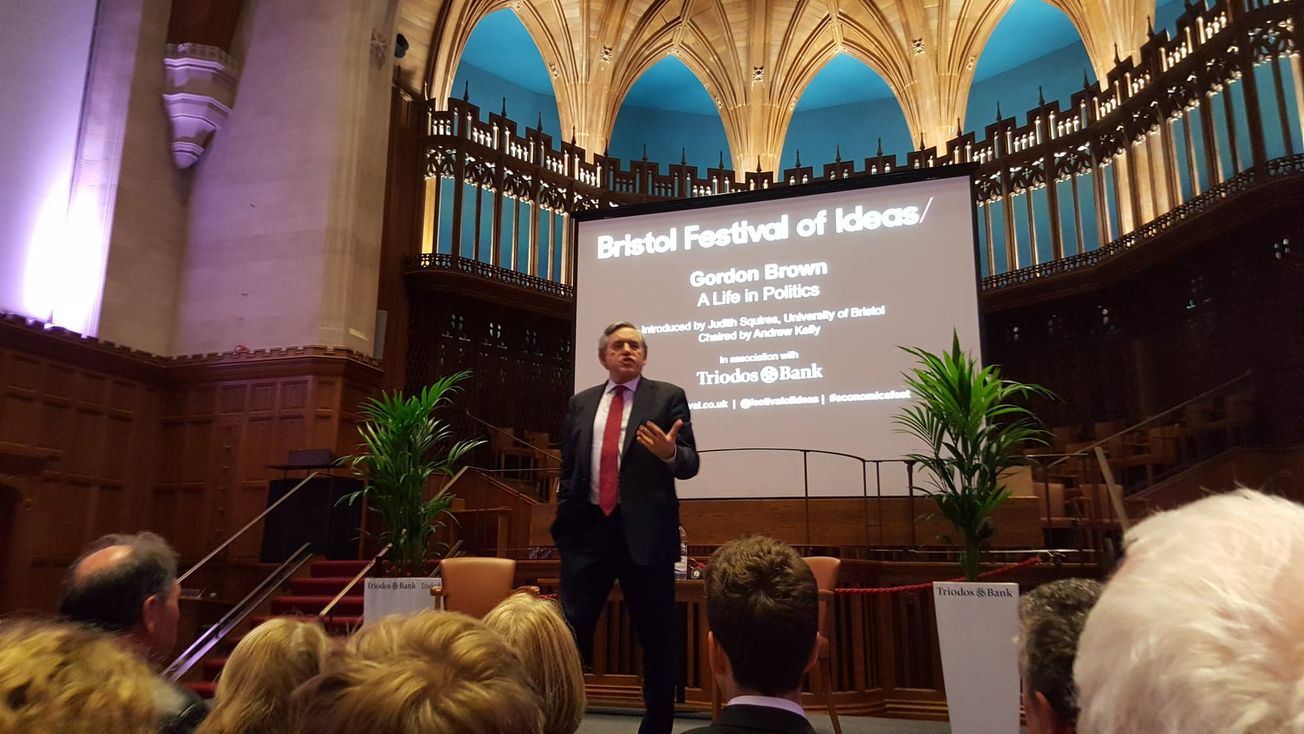Ollie Smith comments on Gordon Brown's recent visit to Bristol
Former Prime Minister Gordon Brown recently came to Bristol University to give a talk as part of the promotional tour for his new autobiography My Life, Our Times, the proceeds from which will go to the Jennifer Brown Research Laboratory in memory of his daughter. Given my interest in politics I had to go.
he remains a man with a great legacy and is of a far higher calibre than those currently in power
What I saw was a wealth of knowledge. He told funny stories, proudly discussed achievements like tax credits, taking pensioners out of poverty and increasing the NHS budget. He discussed his attempts to build a global consensus during the financial crash and his regret at failing to push investment, not austerity, as the solution to the British people. He spoke of the end of Neoliberalism, the state of the centre ground, the need for more national co-operation and, of course, Brexit.
There were even policy suggestions: a need to exploit untaxed resources in tax havens and a graduate tax to pay for university education. He said that persuading people that raising taxes to pay for the NHS took years, a lesson in how progressive politics requires careful planning.

Brown's new book 'My Life, Our Times'
Epigram/Ollie Smith
Brown and the New Labour masterminds Tony Blair, Peter Mandelson and Alistair Campbell hauled the Labour Party to electability from a generation in the political wilderness following four election defeats. It was only by modernising and adopting the centre ground that victory was and could ever have been achieved. Brown made the Labour Party economically trustworthy; this, combined with the appeal and charm of Blair, meant the record 1997 landslide came as no surprise.
Brown actually saved the British economy and the savings of millions of Britons
Brown was the longest serving Chancellor for two centuries, gaining the nickname the ‘Iron Chancellor’ for his unprecedented financial competence. His achievements were numerous: keeping Britain out of the Euro proved very wise; Bank of England independence was sensible; the National Minimum Wage is an extremely powerful means of poverty reduction, the number of children in poverty fell by 600,000; NHS and education funding were improved with 44,000 more doctors and 42,000 more teachers brought in during Labour’s time in office, to list just a few.
Yes, some decisions can be questioned with hindsight: selling gold when it was cheap, initial support for the Iraq war and failings in bank regulation among them.
By 2007, when power was handed over by Blair to Brown, their relationship had apparently soured. Perhaps one conclusion to draw would be that, despite the friction, the sheer dynamism and talent of the two men transformed British politics.
I’ve always felt Brown is unfairly remembered as Prime Minister. Years of blaming the Labour Party for the financial crisis (that actually began in America) and overspending became a tory narrative that completely ignored the fact that by spending vast amounts on bailing out the banks Brown actually saved the British economy and the savings of millions of Britons.

Brown anwered submitted questions after his talk
Epigram/Ollie Smith
During the Scottish Referendum in 2014 Brown was praised for his strong and passionate defence of the Union, showing his huge political weight; the Labour vote in Scotland actually increased in the 2010 election despite Labour losing office nationally.
Brown is defensive of his record but admits his personal failings, particularly with social media, now an integral part of modern politics. He would perhaps have been an even greater success had he lived in an earlier era.
At the end of the talk Brown was heavily applauded. I stayed for the book signing and to shake his hand. I honestly believe Gordon Brown is leagues ahead of any politician currently in Government, and Labour today would struggle to find someone of his stature. I can’t imagine anyone in the current government even attempting what he achieved with the global community during the financial crash. He is as relevant today as he was in office, a titan of our political era.
Featured image: Epigram/Ollie Smith









